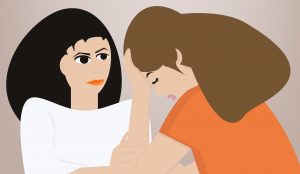
Everyone experiences stress and anxiety, but with the landscape of higher education and the job market shifting, more college students are experiencing higher levels of stress and anxiety than previous generations, according to experts.
Simply put, stress is the body’s physical or psychological response to a real or perceived change in a person’s environment that demands a response, said Dr. Greg Vander Wal, executive director of The University of Alabama Counseling Center.
Anxiety is similar but differs in that it is a person’s fight or flight response being triggered when facing something that’s perceived to be a threat, he said. The feeling of anxiety often manifests as nausea, unease, worry, mind racing or butterflies in the stomach.
Why are students more stressed/anxious?
Vander Wal said stress, anxiety and depression are the top three issues students struggle with when they arrive for counseling.
The reasons are varied.
“I think more students are better able to detect that they are struggling with these issues. They are better educated about mental health in general,” he said.
Another reason is that more people are able to attend college than in the past, he said. With a greater number of college students comes a greater number of stressed and anxious students.
Additionally, two large contributing factors are instability and coping skills.
“Students have more choices and options than they have ever had before, which is stressful,” he said. “And if they either didn’t have enough support when they were growing up or had people doing everything for them, it affects their coping skills.”
Vander Wal said many students feel there’s only one path to success in their chosen field, and if they don’t do everything right along the way they won’t make it.
“The reality is there is no one right path or way to go through college.”
Instability in the job market also plays a part.
Anxiety/Stress vs Anxiety Disorder/Chronic Stress
Having occasional anxiety and stress is one thing, but having it consistently is another.
“Unfortunately, sometimes developmentally appropriate anxiety gets lumped together with mental illness, which is harmful. Most of the students we see are experiencing developmental anxiety and not the mental illness.”
Vander Wal said each person copes with stress and anxiety differently. But if someone is constantly feeling overwhelmed, they should seek immediate help because the effects of continuous stress and anxiety are adverse.
Staying Healthy
Vander Wal said the best way to combat stress is to avoid it through self-care.

“Make sure your lifestyle is helping relieve stress. Make sure you’re eating right, sleeping well, exercising, building in good routines and organization into your life.
“Recognize the way you perceive experiences and your attitude toward them. Rethink and re-evaluate your perspective. If you have a B in a class and think it’s the end of the world, you can re-evaluate that because it’s not.”
“Recognize that you make mistakes. You’re not perfect.”
In practicing self-care, avoid self-medicating with drugs and alcohol. They actually make stress and anxiety worse by forcing your body to deplete resources to deal with introduced substances, Vander Wal said.
“Ask yourself, are there stressors that I can eliminate, such as a toxic relationship or a commitment you can let go of?” he said. “Surround yourself with people who help you feel stress relief and establish clear boundaries with people by saying ‘no’ when you need to say ‘no.’”
Help is Available
For UA students struggling with stress and anxiety, the Counseling Center is available to help.
The Counseling Center is open on Mondays, Wednesdays, Thursdays and Fridays from 8 a.m. to 5 p.m., and on Tuesdays from 9 a.m. to 5 p.m. It’s located in the South Lawn Office Building, 1100 Jackson Ave.
To schedule an appointment with a counselor, phone 205-348-3863.
